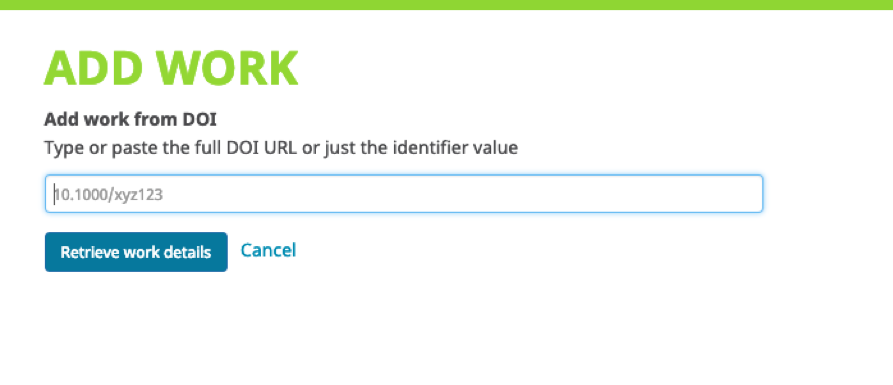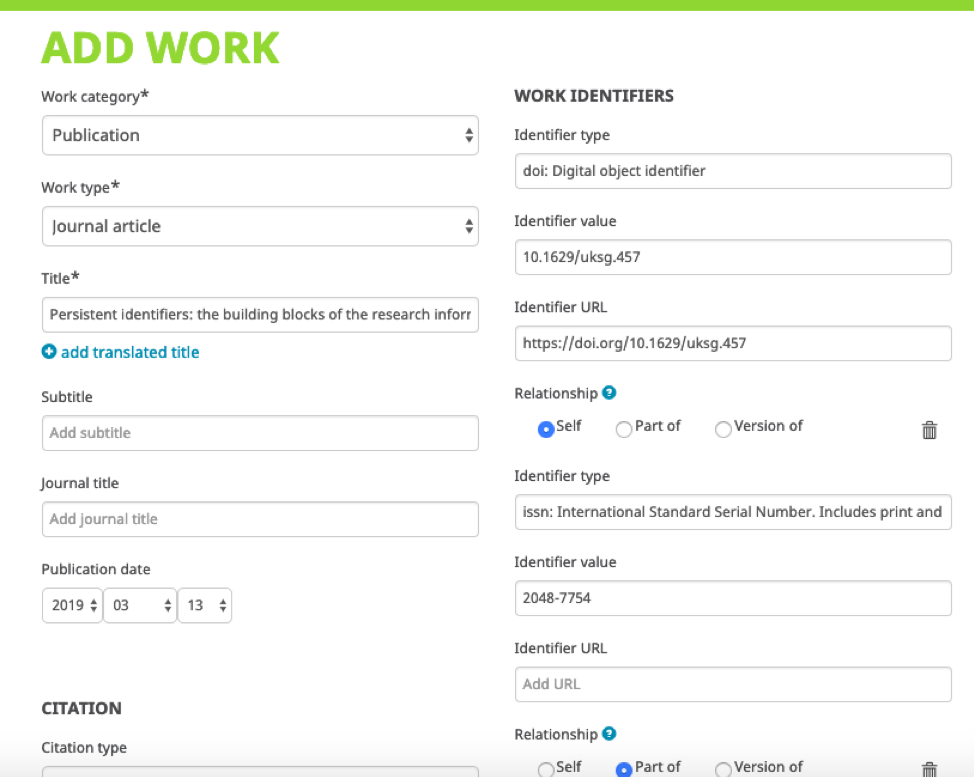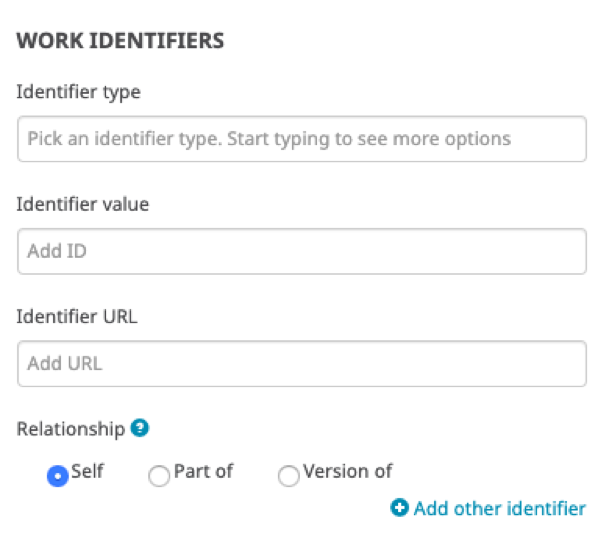Each year our project roadmap focuses on a specific sector and 2019 is the Year of the Researcher. So we are delighted to announce three new features that have recently been developed to help researchers to add and manage works on their ORCID record — adding works by identifier, the new preprints work type, and a new way of grouping works.
Adding works by identifier
You can now easily add works to your ORCID record using a DOI (Crossref, DataCite, and mEDRA only), PubMed ID, or ArXiv ID. This feature is available from within the works header on your ORCID record.

By selecting this option, you simply need to add the relevant ID, and the works data will be automatically populated, saving you the time and hassle of manually entering this information.


Please be sure to review the imported data before saving it to your record!
Please see Adding works by identifier for more information.
Preprint added as a new work type
In response to requests from our community, we are delighted to announce that preprints — versions of a paper made publicly available before formal peer review and publication — are now available as a work type. Preprint items can be added to ORCID records using this work type, allowing them to be easily distinguished from other publication types.
New work relationship – version of
The same work may be added to ORCID records from different sources. Works will be grouped together, based on shared identifiers (such as DOIs, ISBNs, etc.). We have added a new grouping method version of so that alternate versions of works can be linked together, for example a pre-print might include the published versions DOI, or an older dataset might refer to a newer version.
There are now three types of identifier relationships for works:
- A “part-of” identifier, such as an ISSN. Refers to the journal — the article is “part of” the journal
- A “self” identifier, such as a DOI.Refers to the individual work itself
- A “version of’ identifier, such as an updated DOI.Refers to an alternate version of the work

For more information please refer to our KnowledgeBase article.
Watch this space!
We are currently working with our user community on testing new features that will allow users to manually group works together.
We greatly value feedback from our community and we encourage you to add any iDeas for how we can improve our registry or API to our iDeas Forum.
